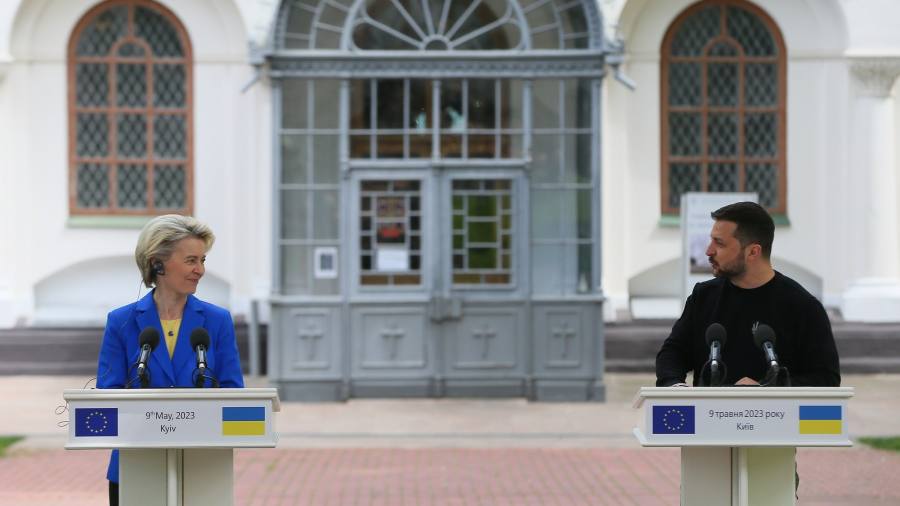
Brussels is working on a four-year financing plan for Ukraine worth tens of billions of euros as it seeks to put its support for the war-torn country on a more stable and predictable footing.
The European Commission’s new approach follows criticism by allies last year for the EU’s haphazard and unpredictable financial support for Kyiv, where public finances are under immense strain because of the war. The commission has started to work on a proposal that will help cover the country’s needs not only next year but into 2027, according to EU diplomats and officials.
Backers of the plan, which still needs to be fleshed out, say it would provide Kyiv with more visibility and certainty in its finances. It is also aimed at encouraging other allies, such as the US and UK, to provide similar long-term pledges.
The US had pledged more than $26bn in economic support as of February, while the UK committed to spend £2.5bn, with even larger amounts of military assistance, according to the Kiel Institute.
If it wins the assent of all the member states, which is unlikely to be easy, the money could be used for Ukraine’s general budgetary support, extending the EU’s current macro-financial assistance package worth €18bn this year. But EU funds could also be deployed to help Ukraine pay for high-priority immediate rebuilding needs, estimated at $14bn this year alone.
The financing plan, which could entail fresh debt issuance by the commission, comes amid a review of the EU’s multiannual budget, which runs from 2021 to 2027 and has been heavily depleted by the war and associated refugee influx, as well as high inflation.
The commission proposals are still being drafted, but they could be ready as soon as this month, potentially ahead of a Ukraine recovery conference planned in London on June 21-22.
Officials hope that by coming forward with longer-term financing the EU might encourage the US to offer its own multiyear assistance. That is of particular concern given the increasing uncertainty of the political environment in Washington, as the election approaches next year and parts of the Republican party become restive over the scale of US assistance to Ukraine.
The figures involved have yet to be finalised by the commission, which declined to comment. The financial package would be linked to continuing reform requirements, as well as controls to ensure the money is well-spent.
Getting EU member states to unanimously sign off on the financing will be challenging particularly since Hungary has already held up previous rounds of funding for Ukraine as part of Prime Minister Viktor Orbán’s tactics in seeking to unlock billions of euros of frozen EU money for his own country.
“Ukraine’s needs are stark and they need more reassurance,” said one official briefed on the proposal. “It’s going to be a big fight [with the member states] but there’s still a lot of desire to help Ukraine.”
In March the IMF said it was providing a $15.6bn extended funding facility to Ukraine that will last 48 months, as part of the renewed effort to put Kyiv’s finances on a more secure footing. Ukraine has indicated that its financing needs next year could be as large as in 2023.